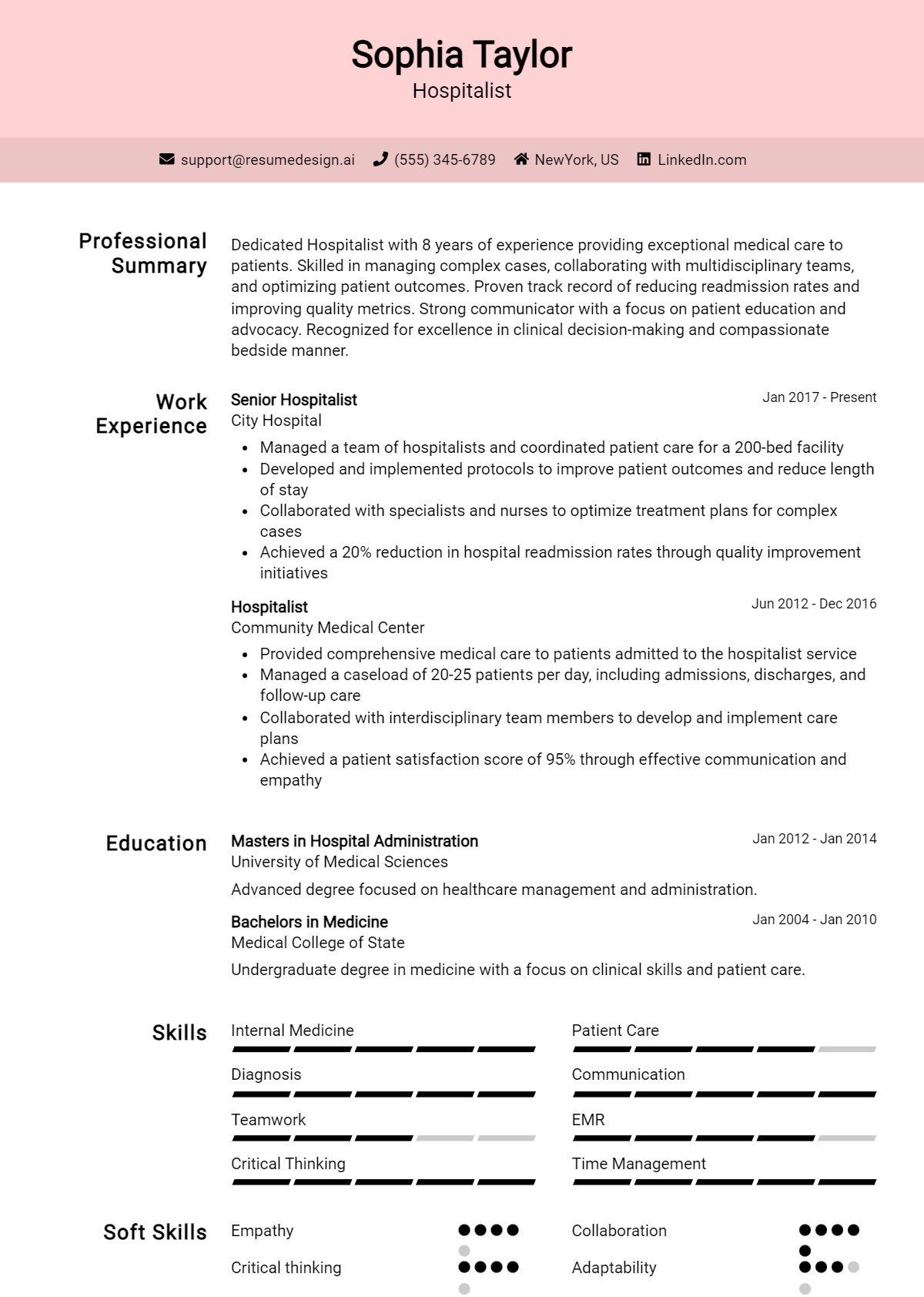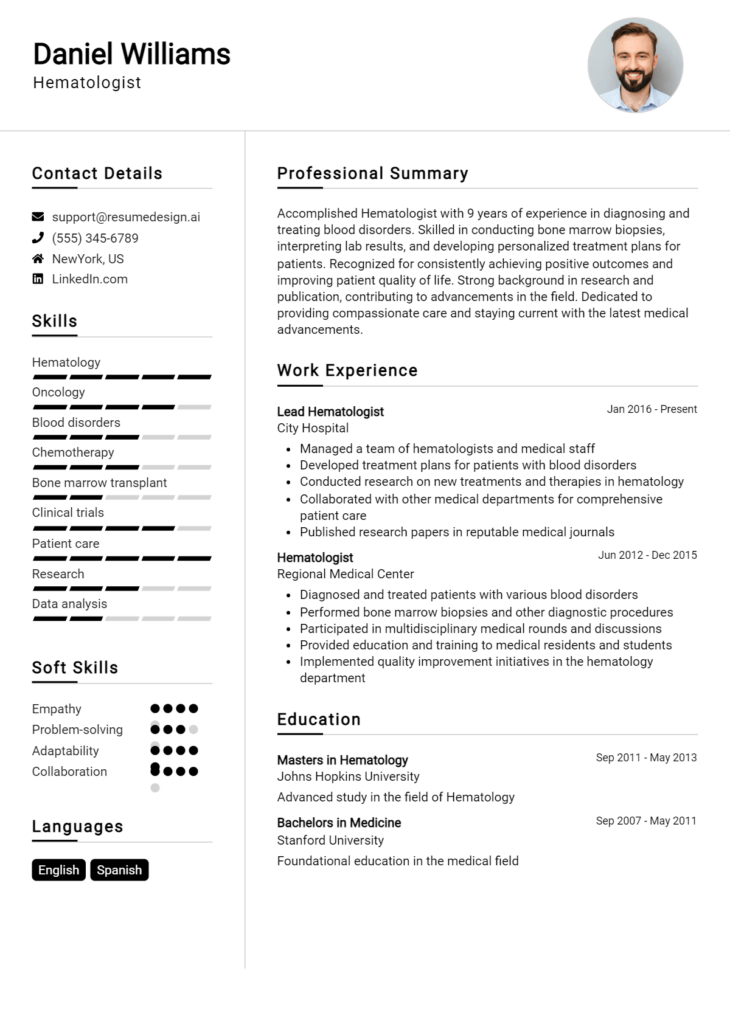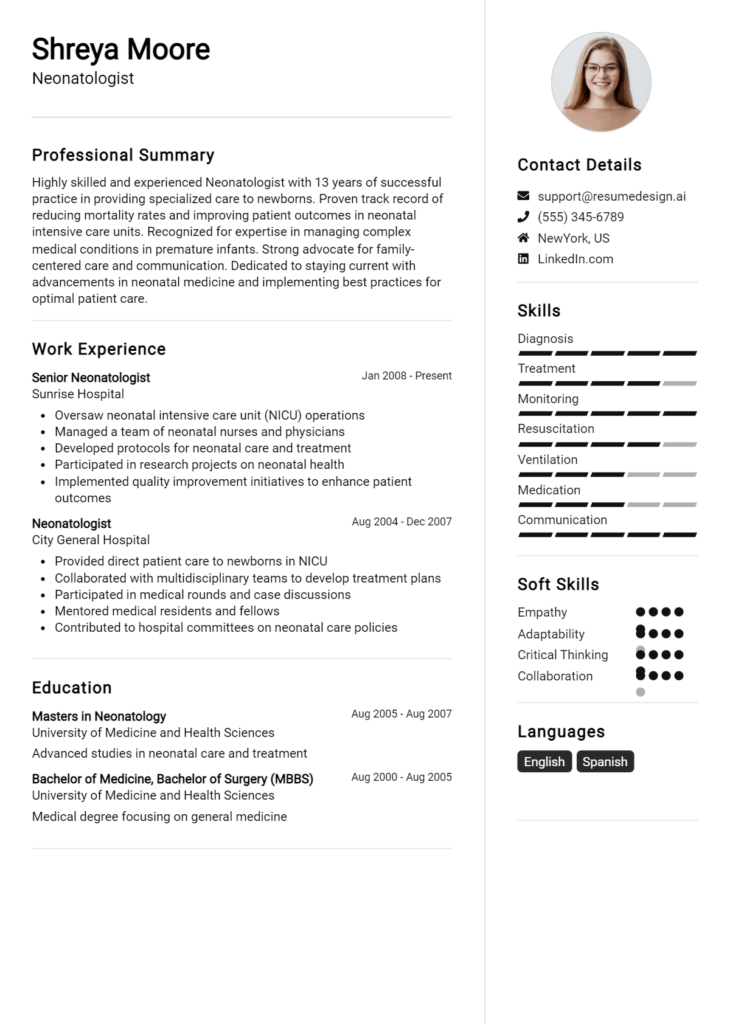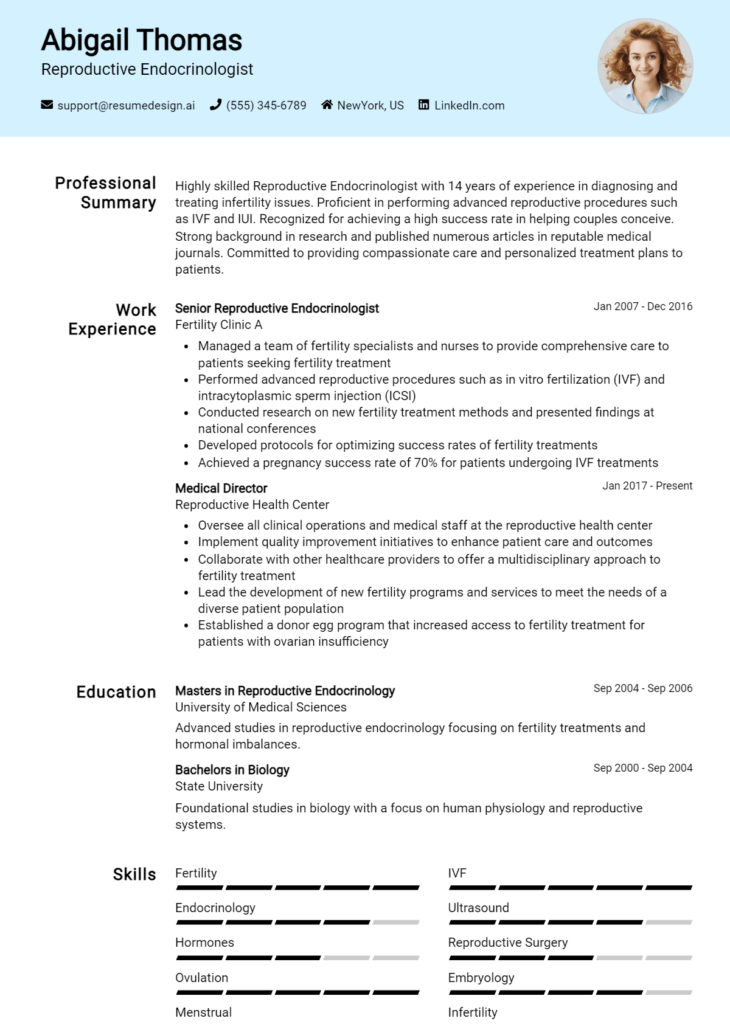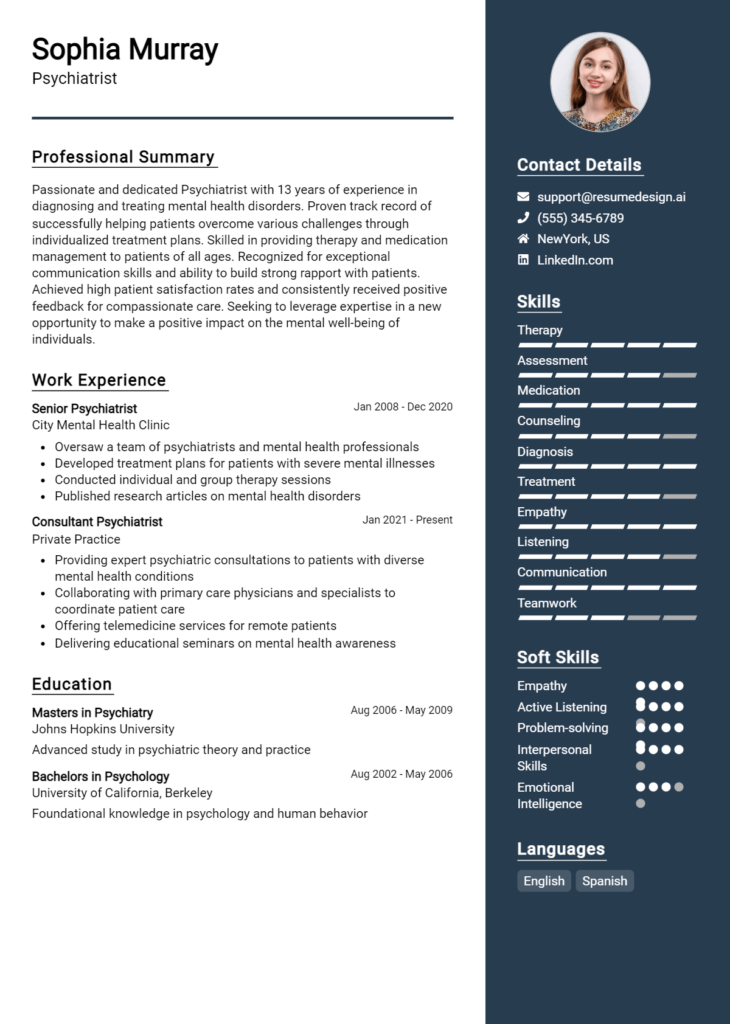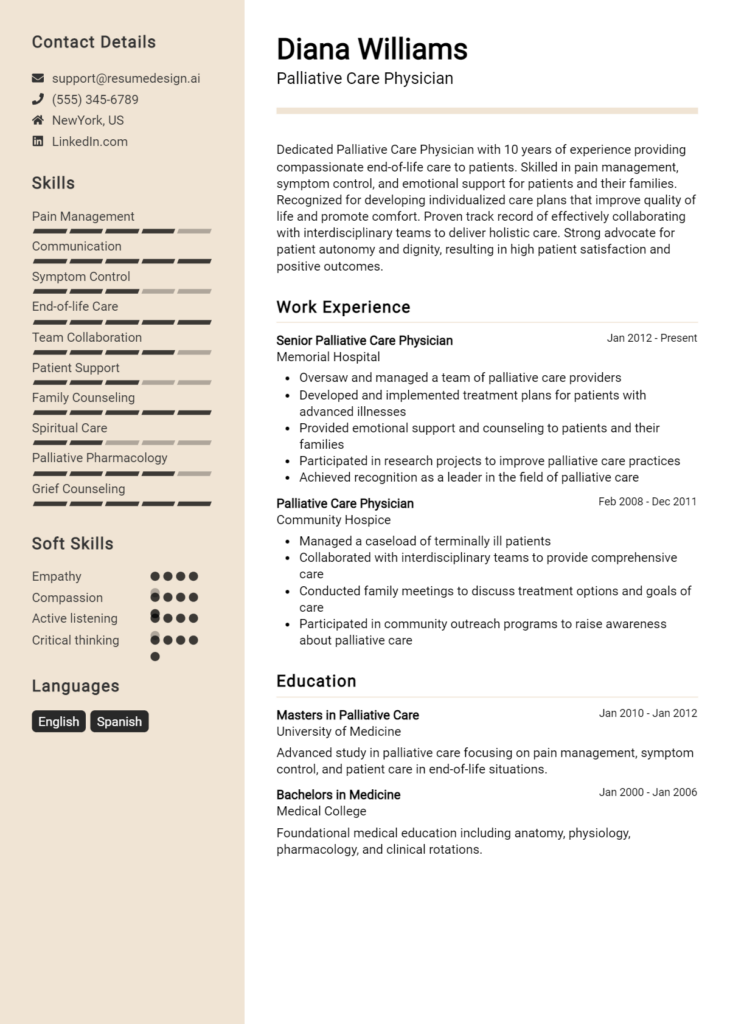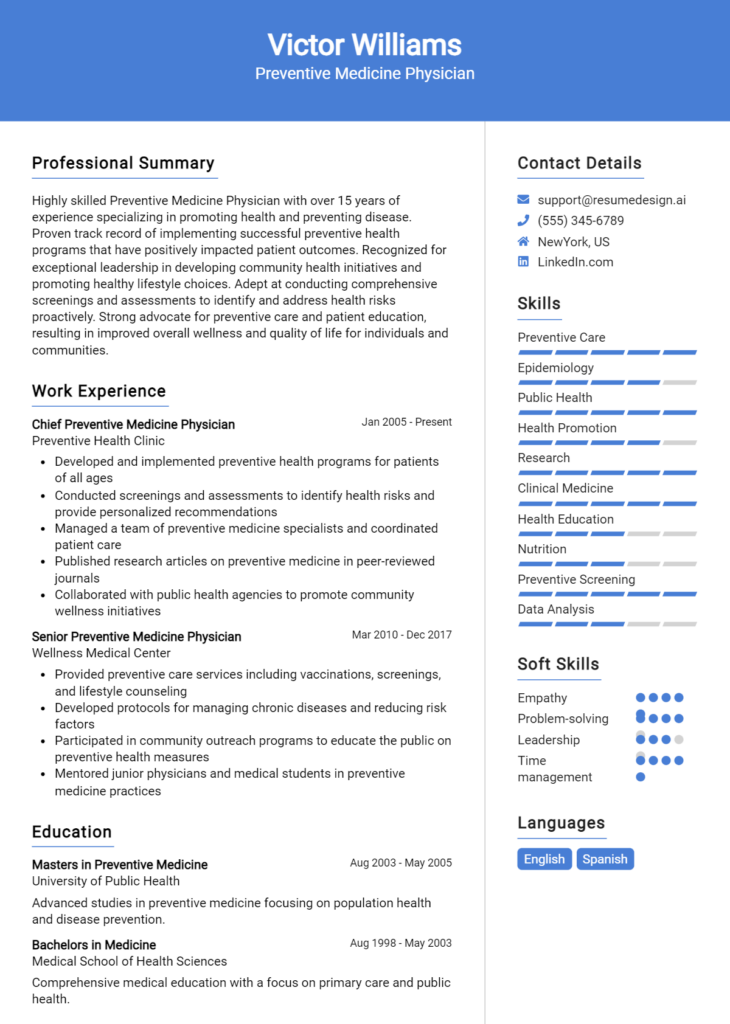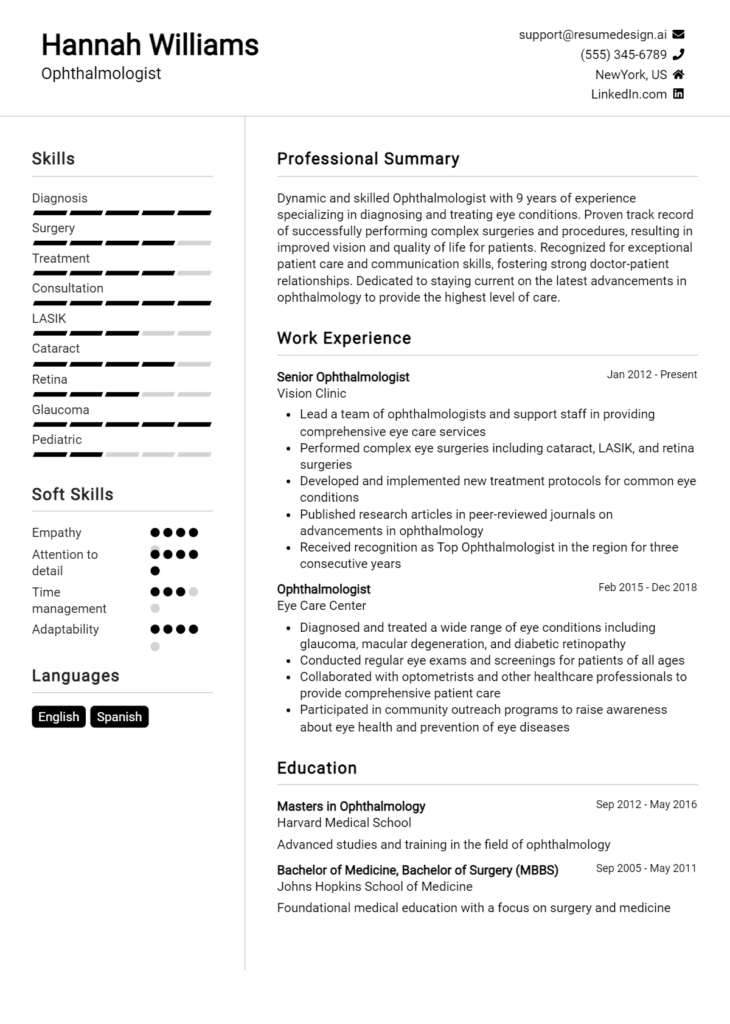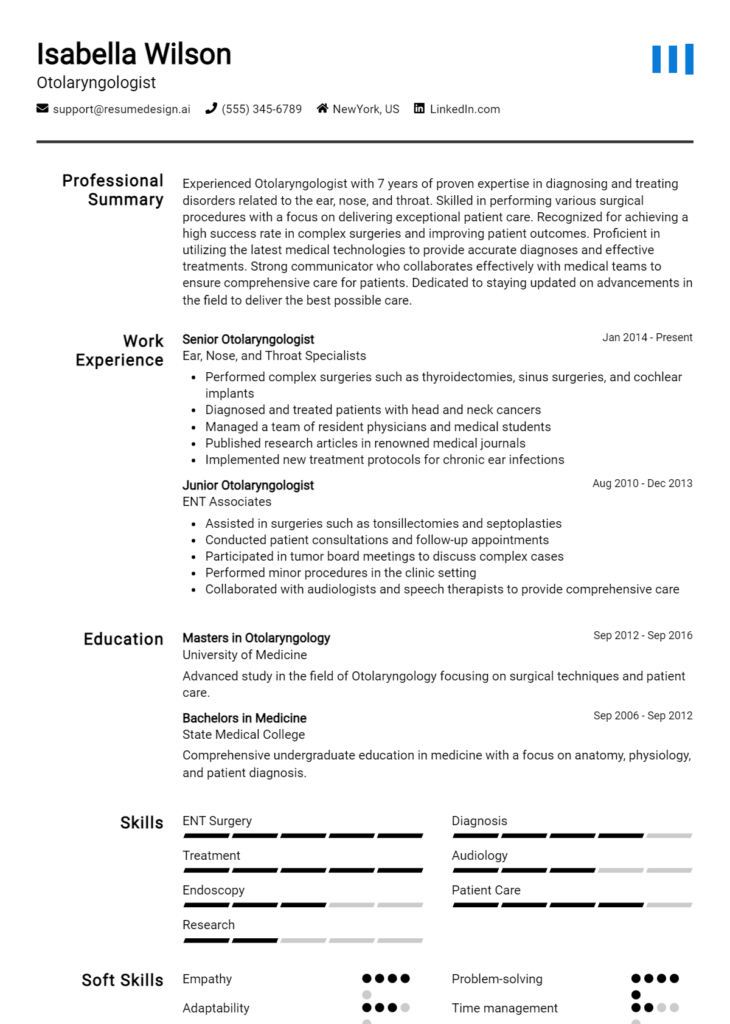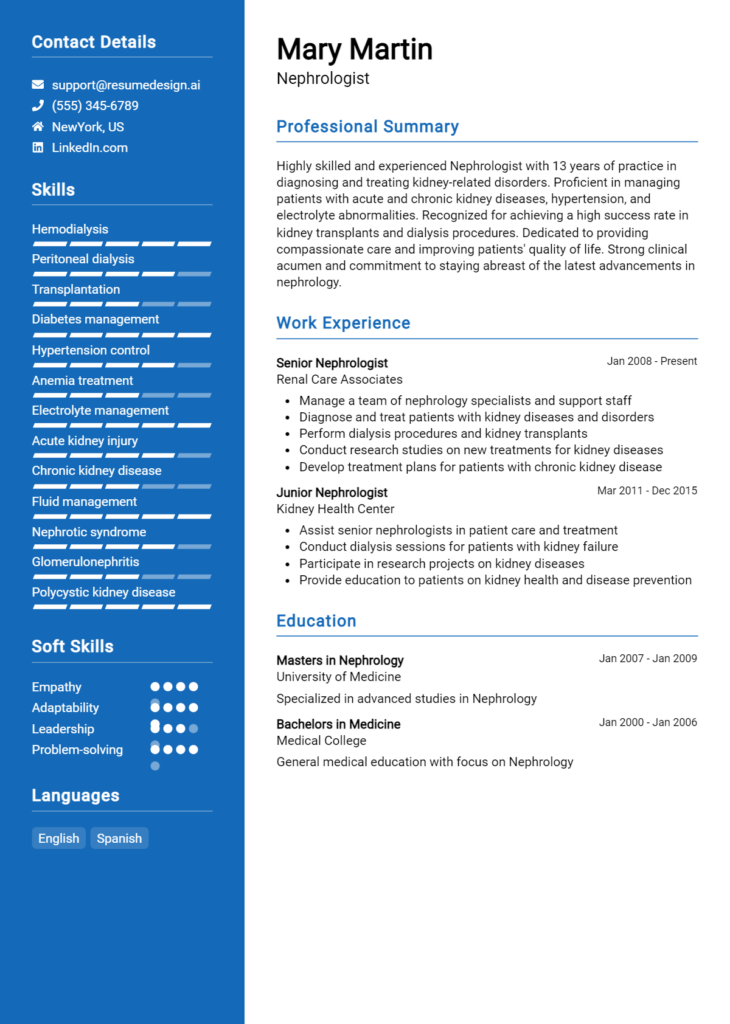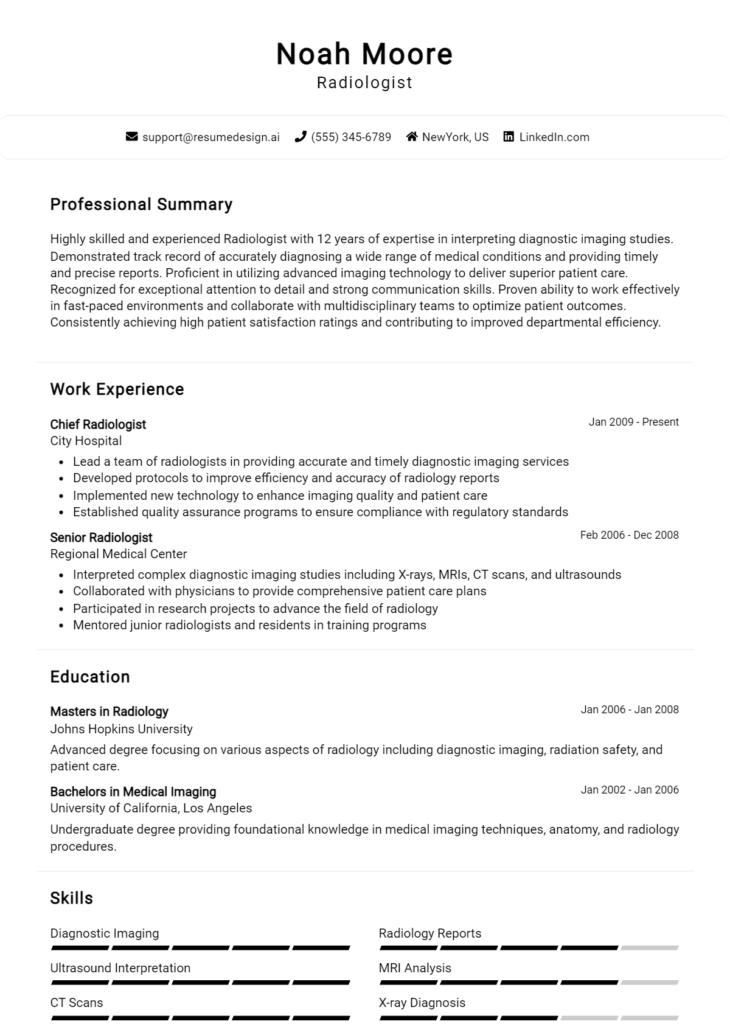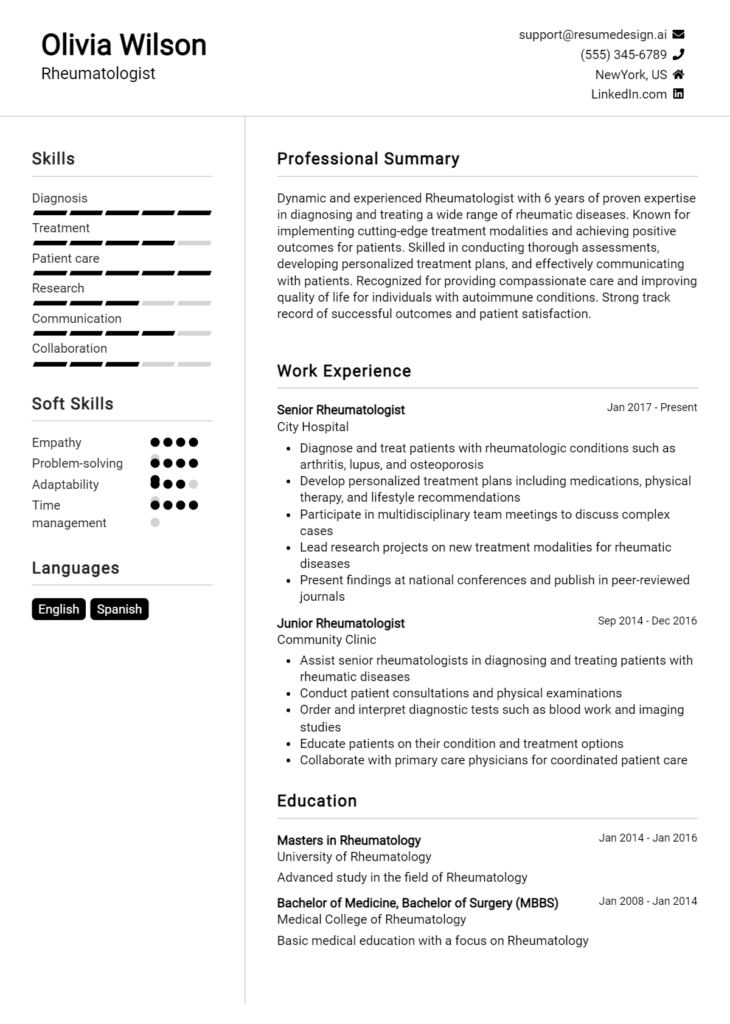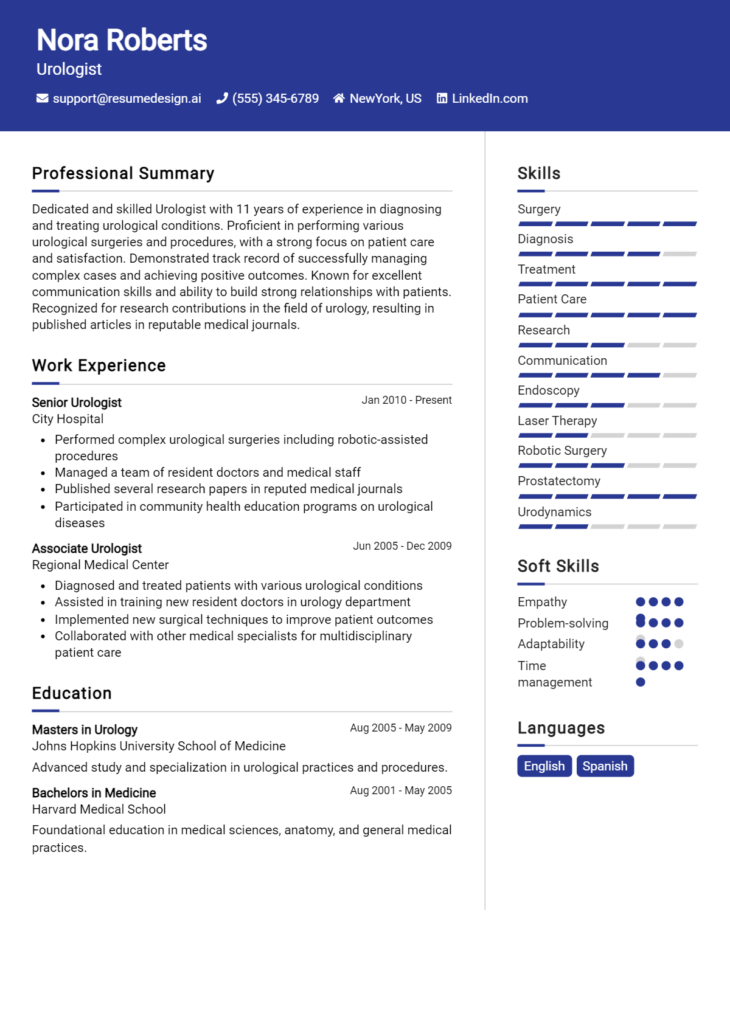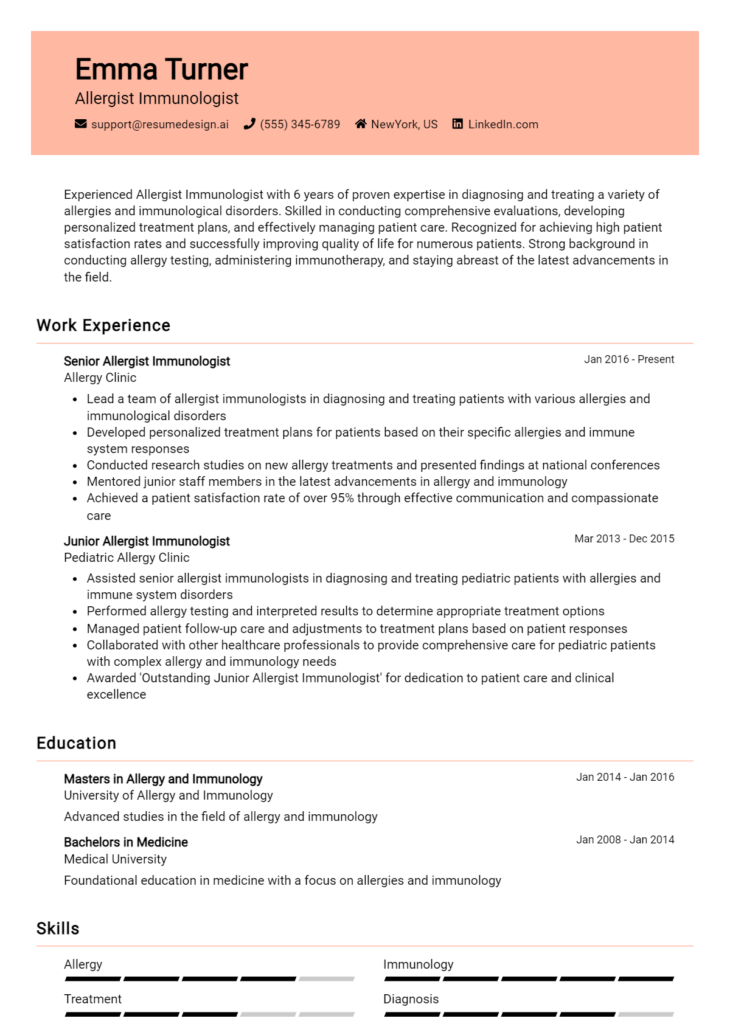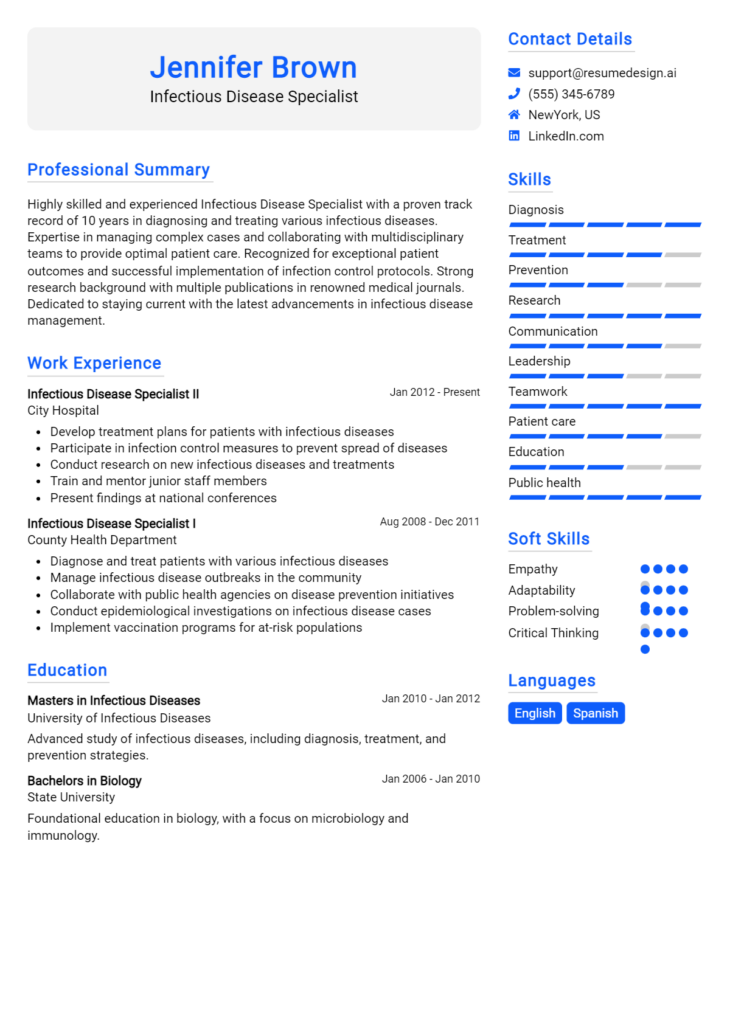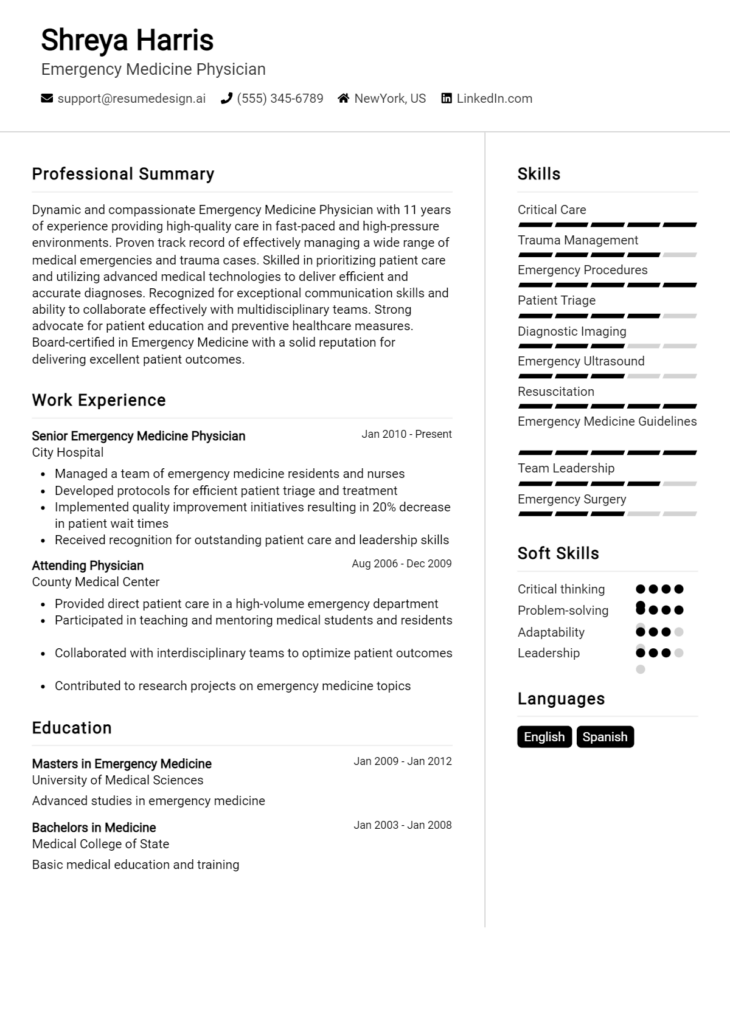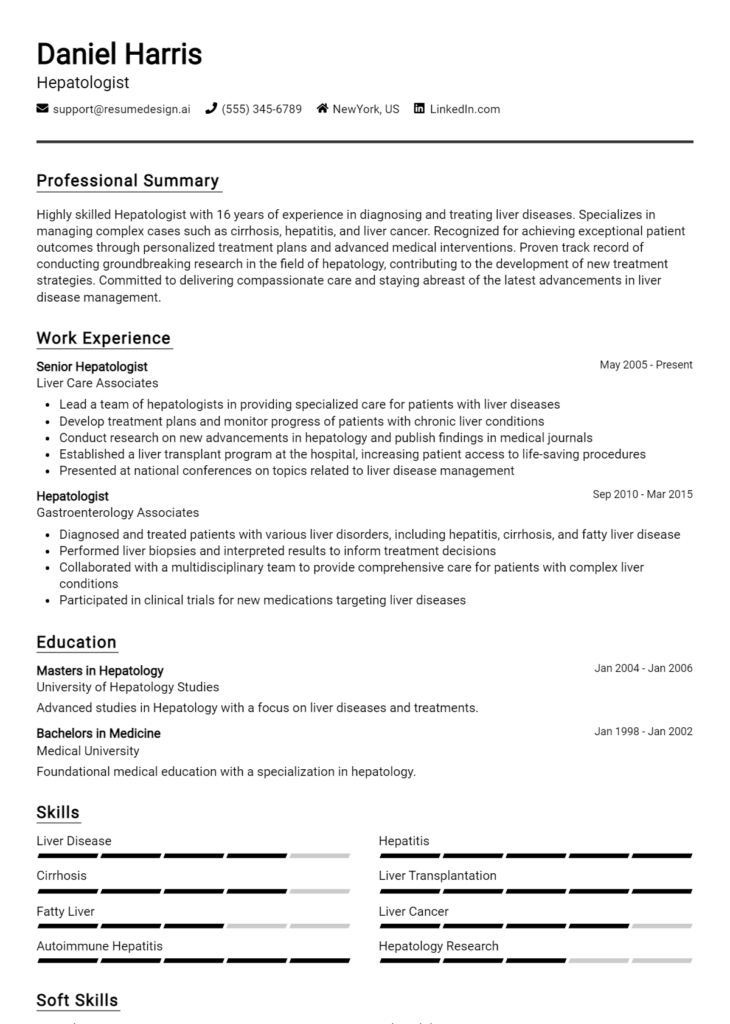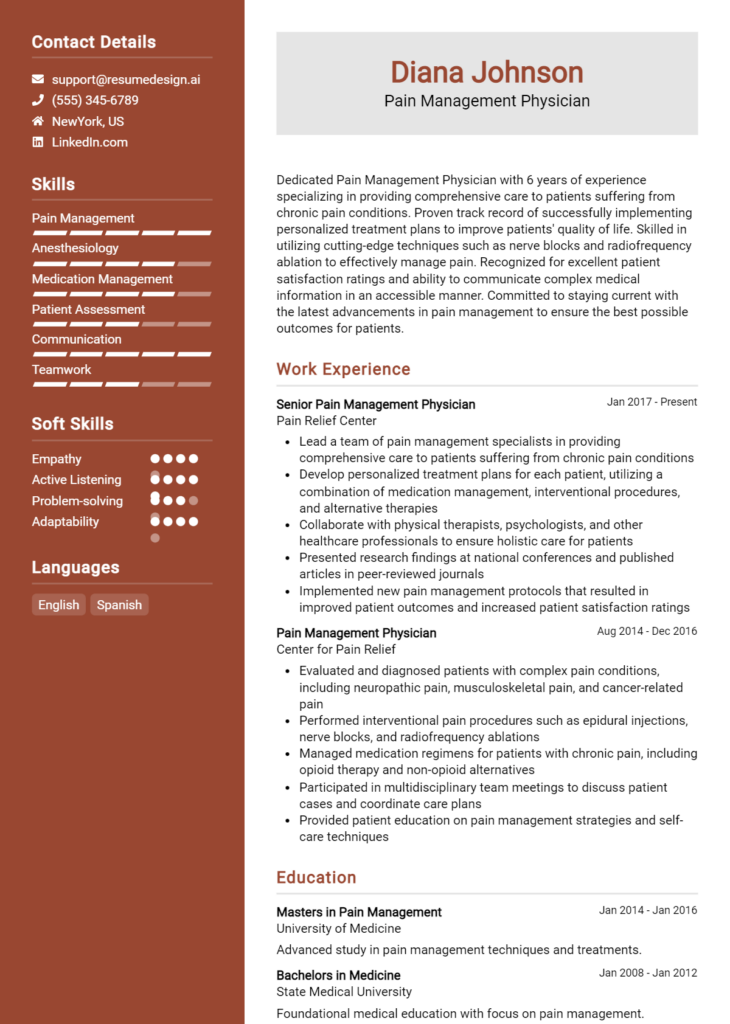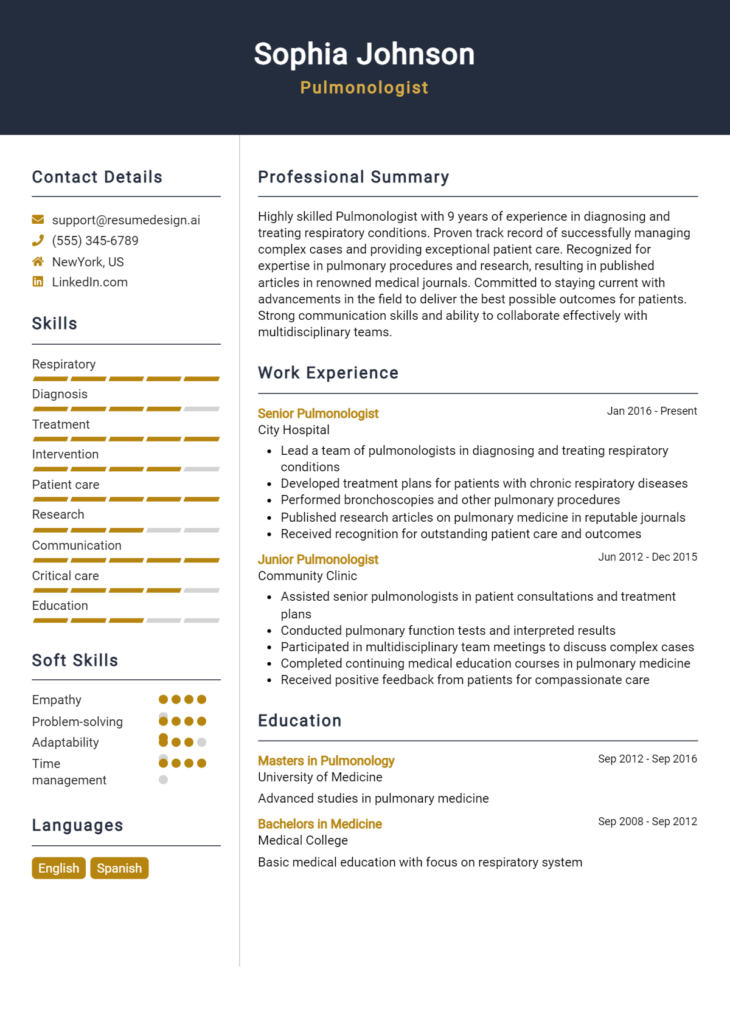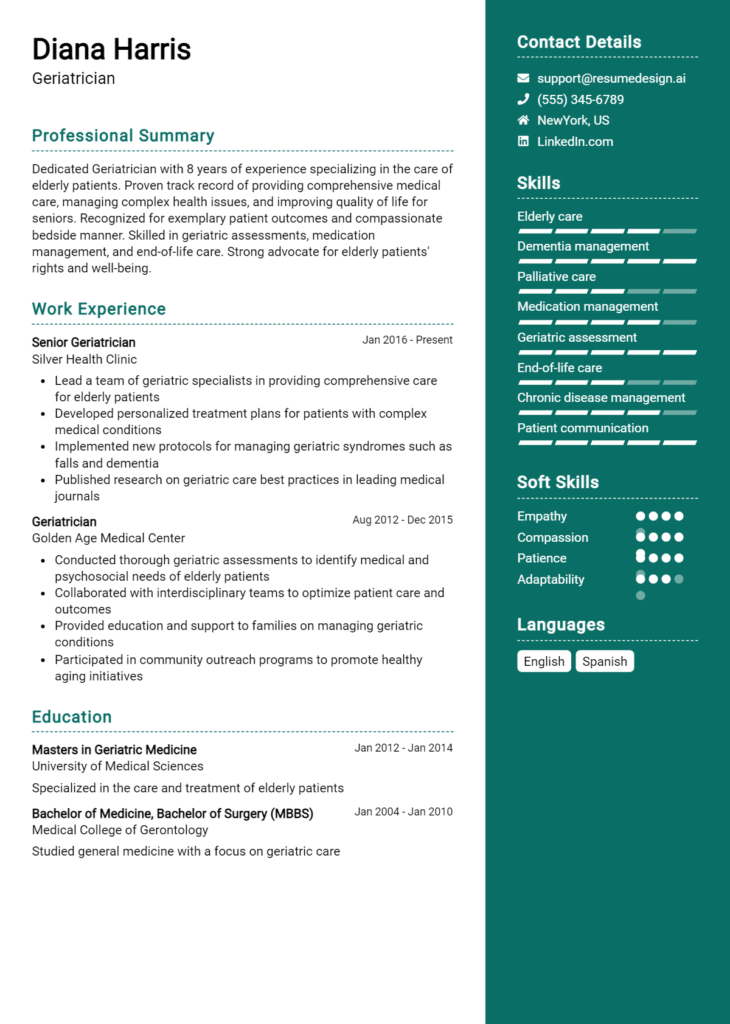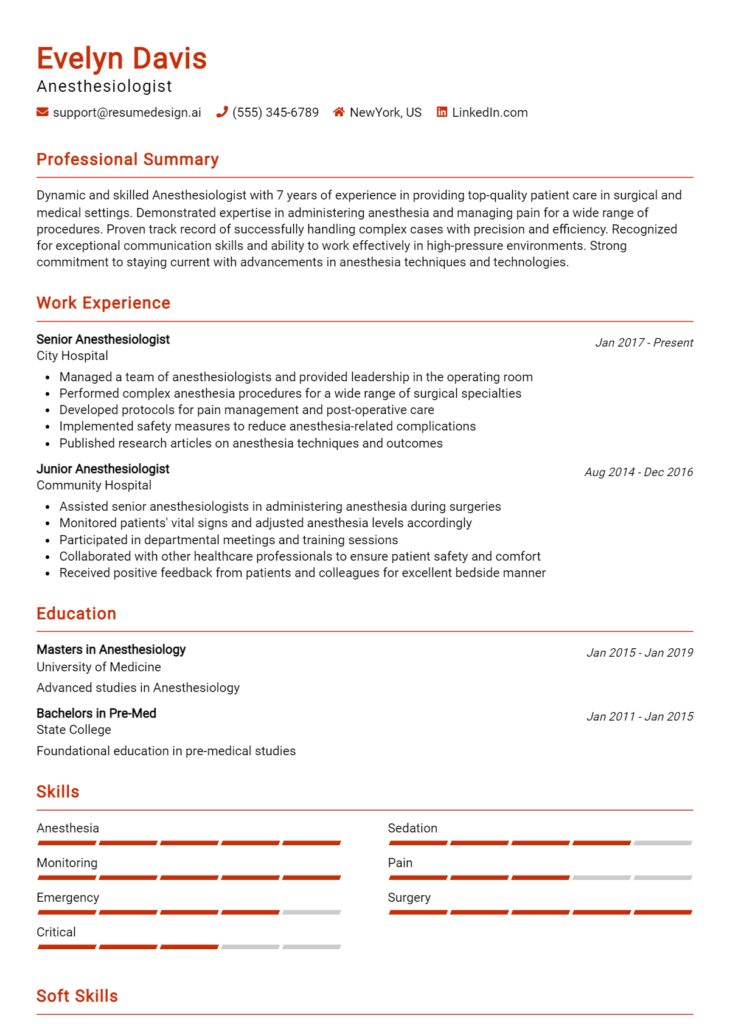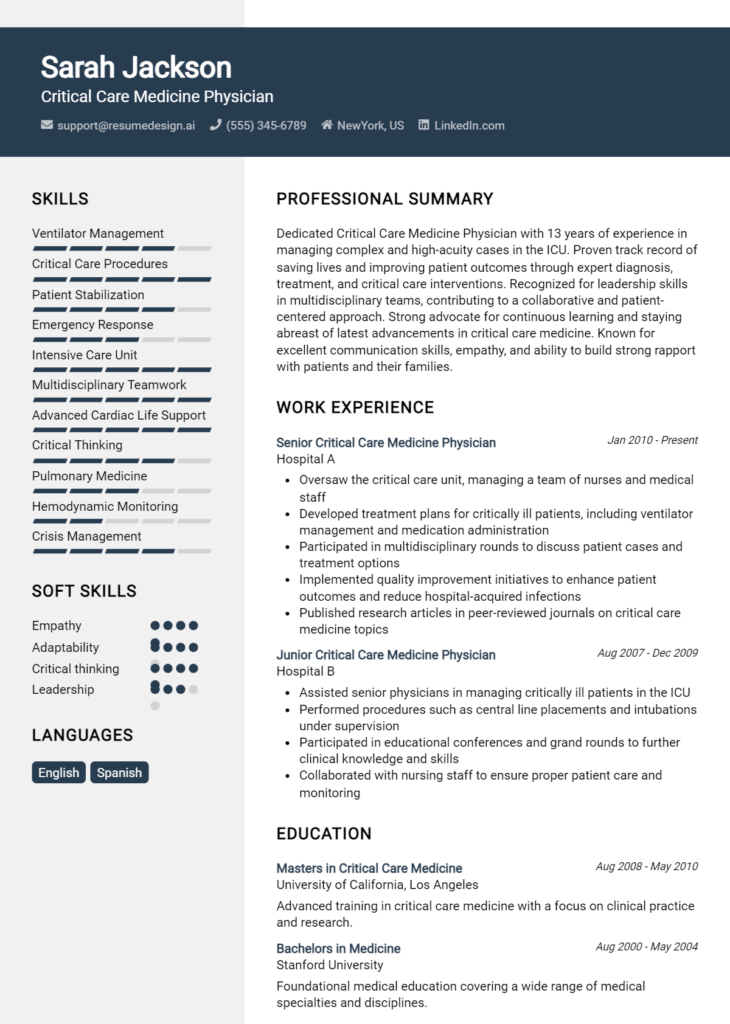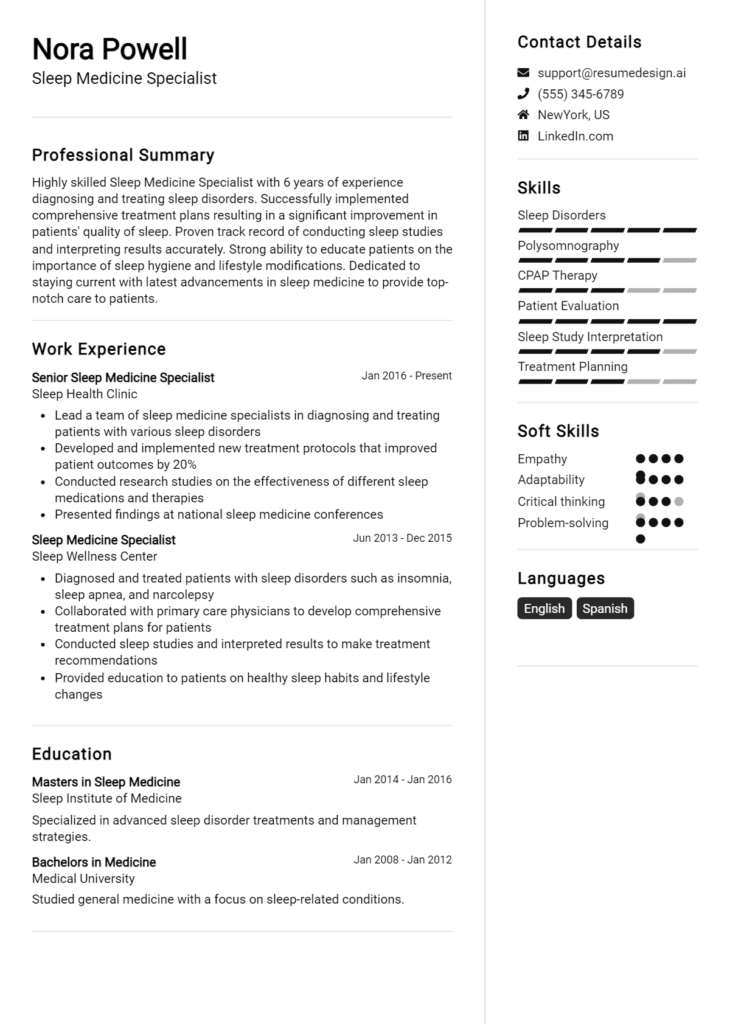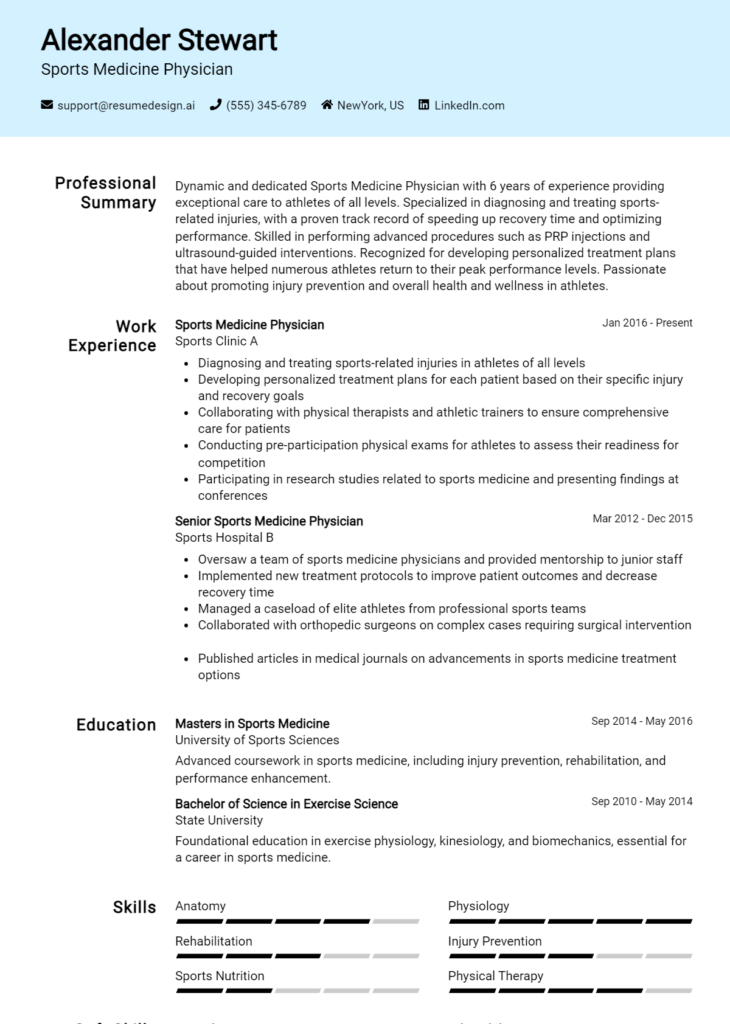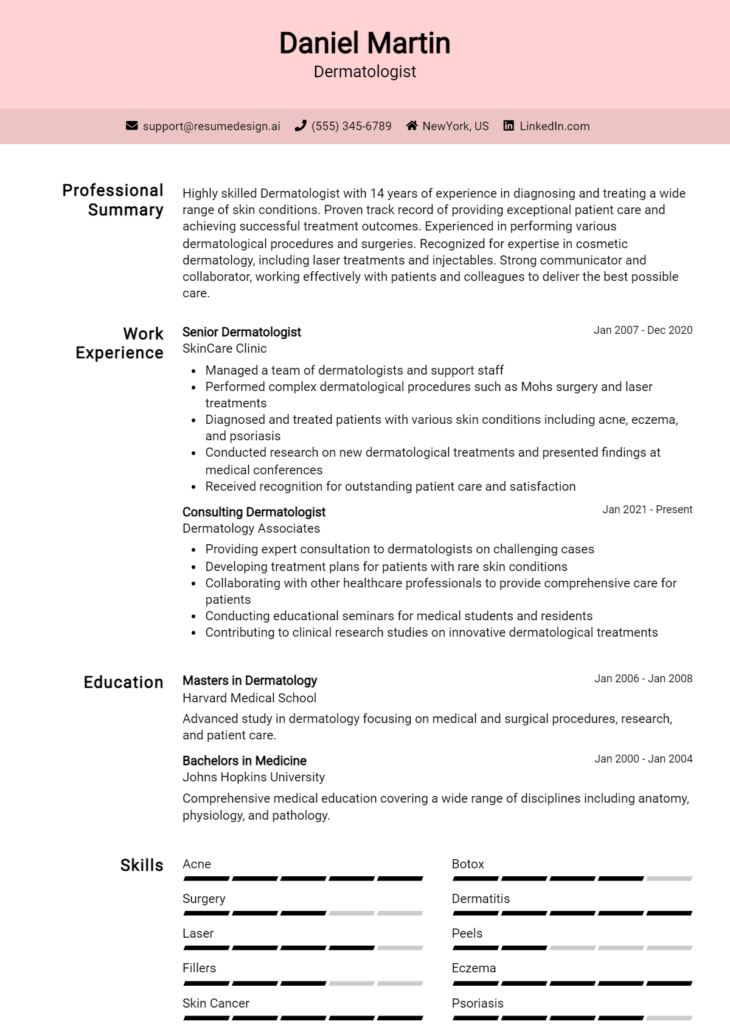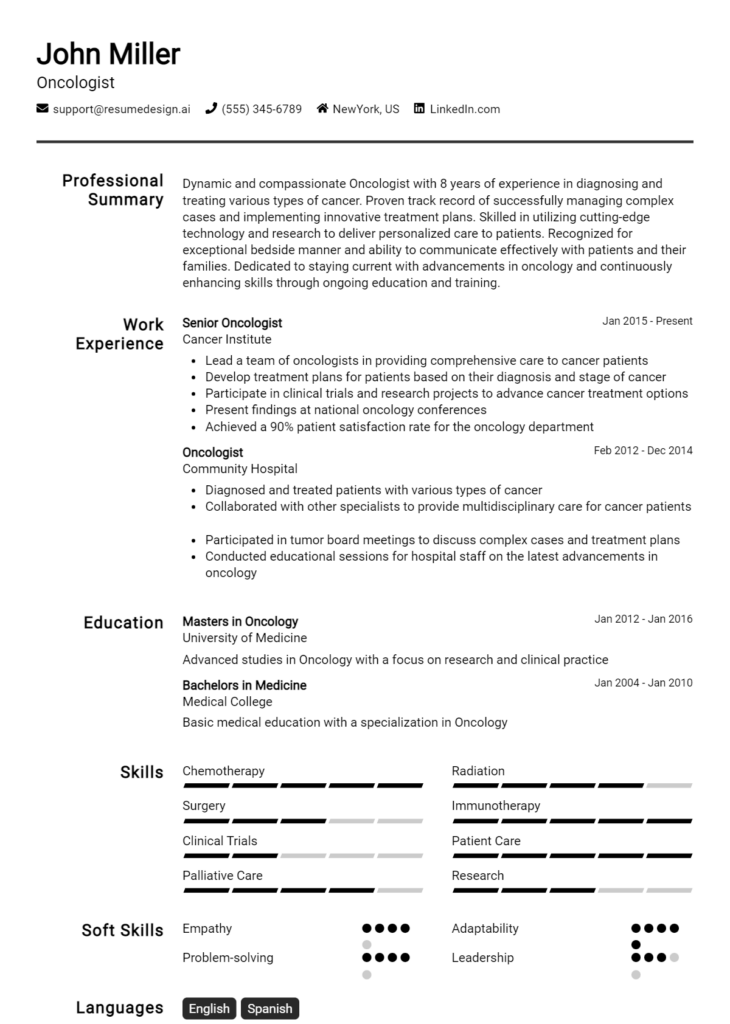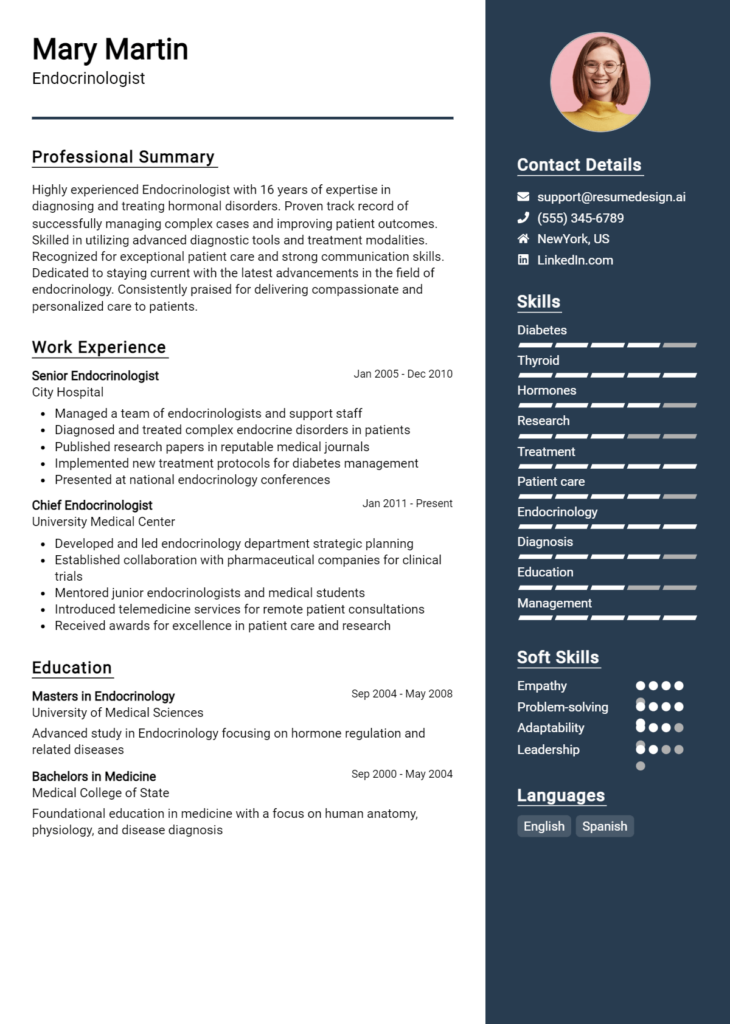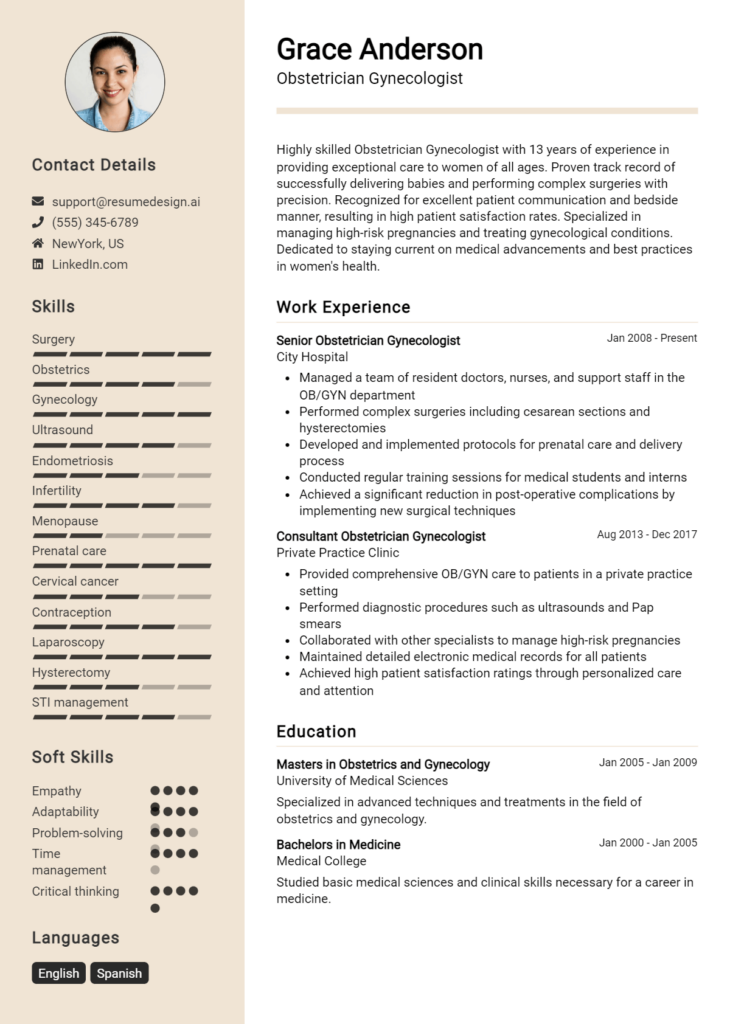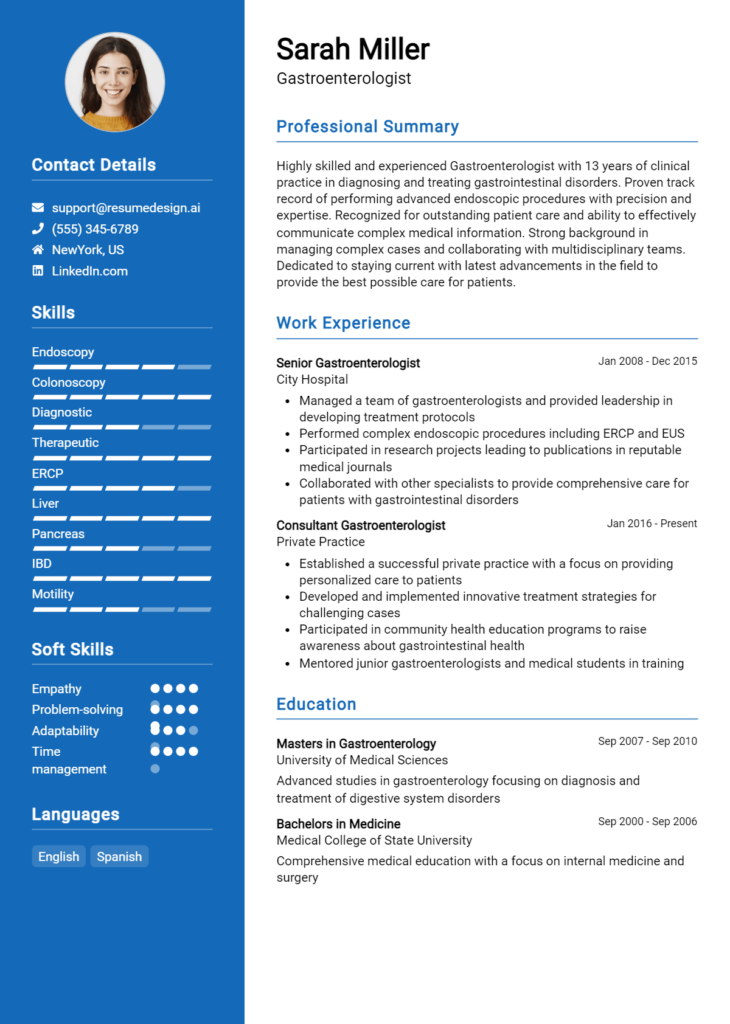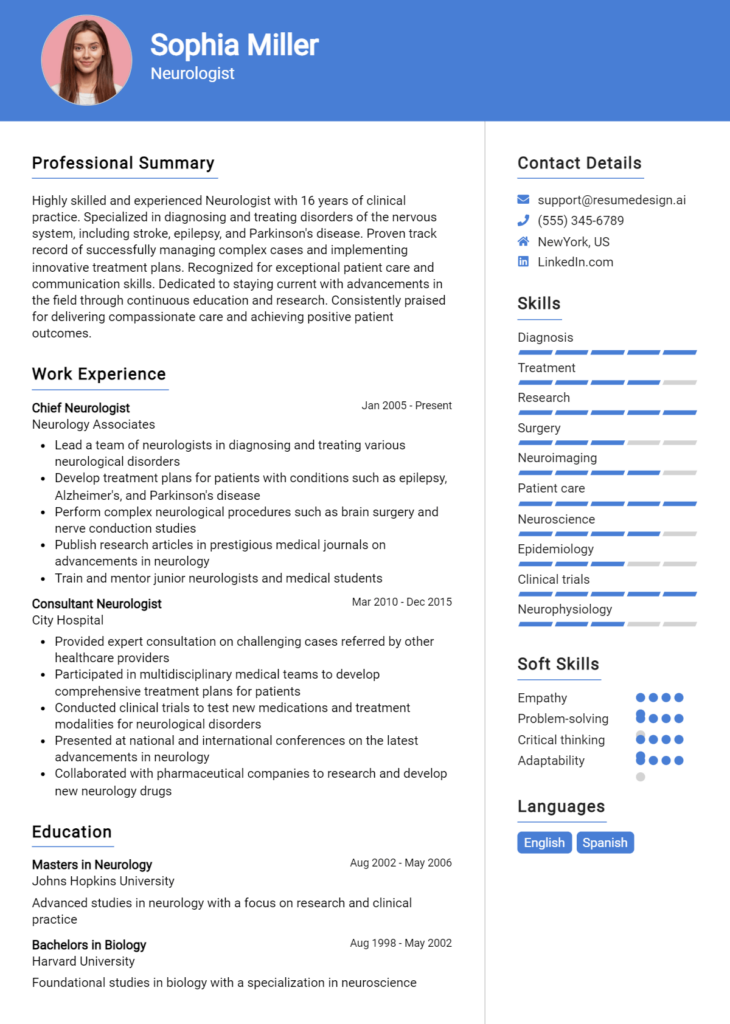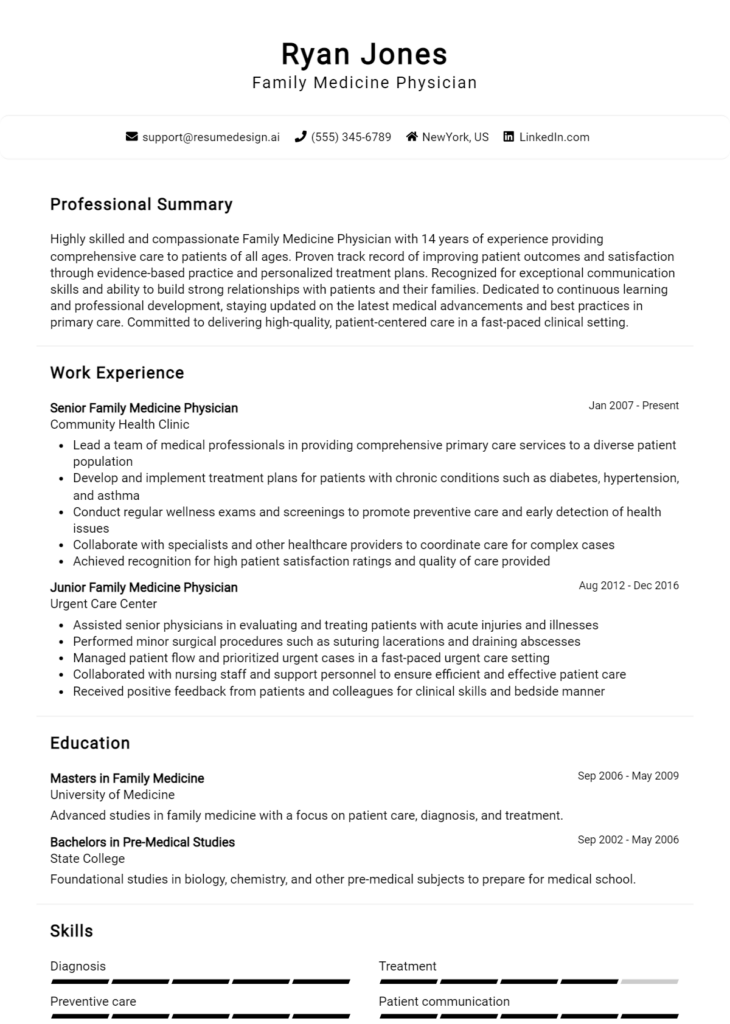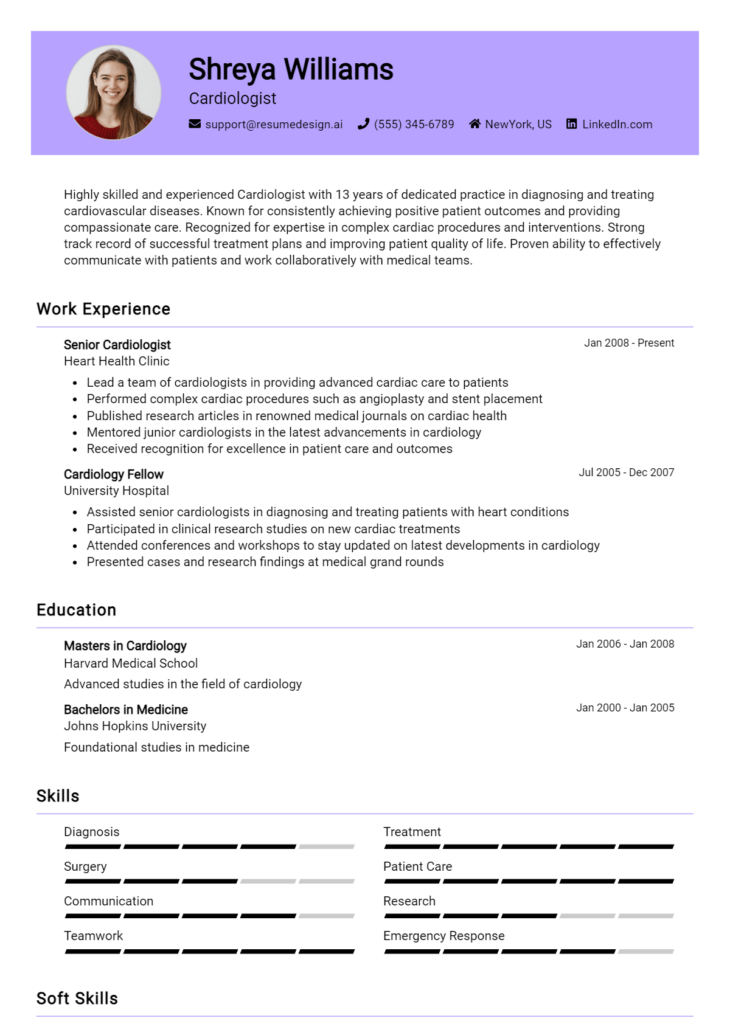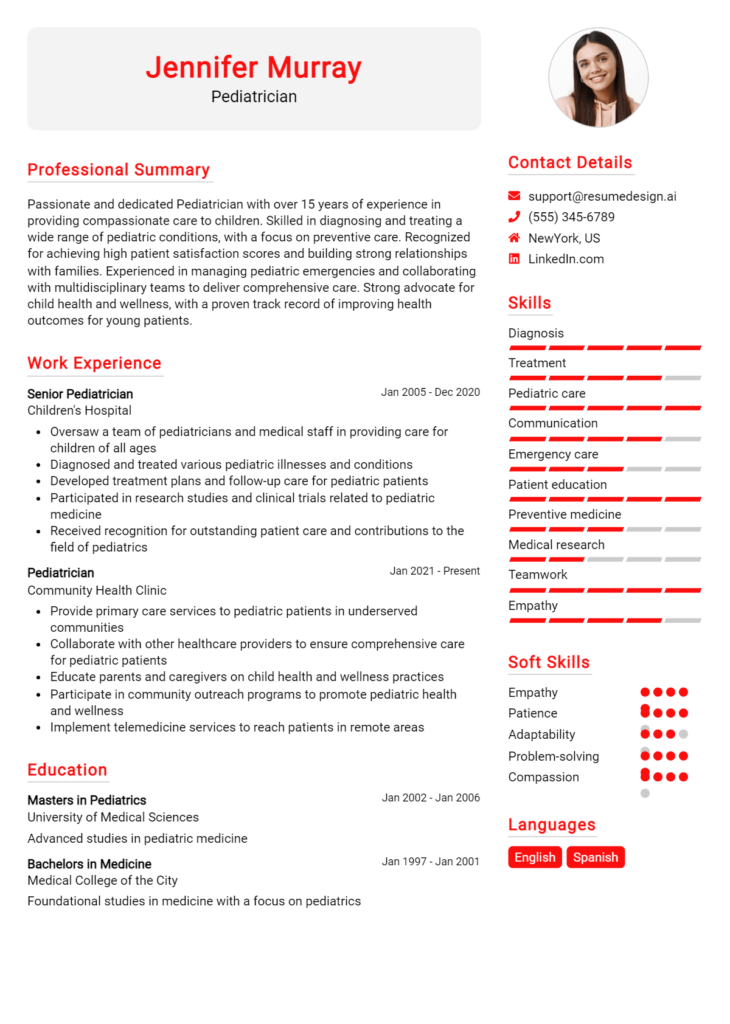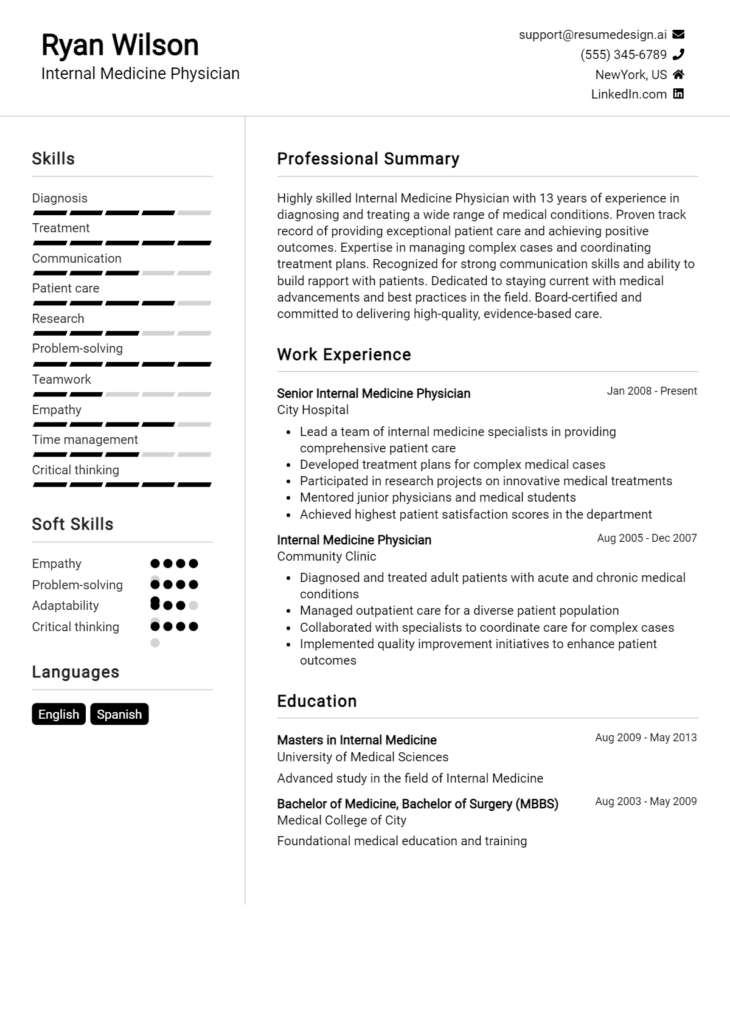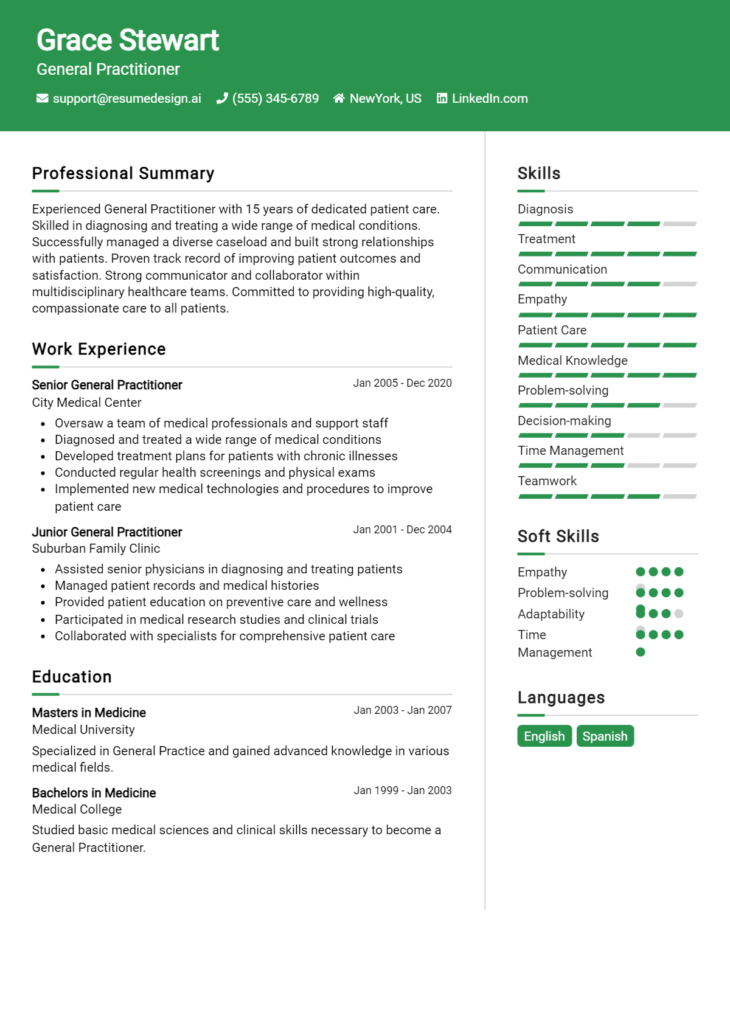Hospitalist Core Responsibilities
A Hospitalist plays a crucial role in patient care by acting as a liaison between various departments, ensuring seamless communication and coordination of treatment plans. Key responsibilities include managing inpatient care, conducting patient assessments, and collaborating with specialists. Essential skills encompass technical proficiency, operational efficiency, and robust problem-solving abilities, which collectively contribute to improving patient outcomes and organizational goals. A well-structured resume effectively highlights these qualifications, showcasing the candidate's readiness to excel in this dynamic environment.
Common Responsibilities Listed on Hospitalist Resume
- Conduct comprehensive patient evaluations and assessments.
- Develop and implement individualized treatment plans.
- Coordinate care with multidisciplinary teams and specialists.
- Manage acute medical conditions and emergencies.
- Perform diagnostic tests and interpret results.
- Educate patients and families on health management.
- Document patient progress and treatment outcomes accurately.
- Participate in quality improvement initiatives.
- Assist with discharge planning and follow-up care.
- Maintain compliance with hospital protocols and regulations.
- Provide mentorship and training to medical staff and residents.
- Engage in research and clinical trials when applicable.
High-Level Resume Tips for Hospitalist Professionals
In the highly competitive field of medicine, a well-crafted resume is crucial for Hospitalist professionals seeking to make a lasting first impression on potential employers. Your resume serves as a gateway to your career, showcasing not only your clinical skills but also your unique achievements and contributions to patient care. It needs to reflect your expertise in managing complex patient cases, your ability to work within multidisciplinary teams, and your commitment to continuous improvement in healthcare delivery. This guide aims to equip you with practical and actionable resume tips specifically tailored for Hospitalist professionals, ensuring that your application stands out in a crowded job market.
Top Resume Tips for Hospitalist Professionals
- Tailor your resume to the specific job description, using keywords and phrases that align with the role you are applying for.
- Highlight relevant experience in hospital settings, emphasizing your roles and responsibilities in patient management and care coordination.
- Quantify your achievements where possible, such as the number of patients managed, improvements in patient outcomes, or successful implementation of initiatives.
- Showcase industry-specific skills, including proficiency in electronic health records (EHR), critical care procedures, and interdisciplinary collaboration.
- Include any board certifications, fellowships, or specialized training that enhance your qualifications as a Hospitalist.
- Utilize a clean and professional format, ensuring that your resume is easy to read and well-organized, with clear section headings.
- Incorporate a summary statement that encapsulates your career objectives and highlights your unique value as a candidate.
- Highlight any leadership or teaching roles, demonstrating your commitment to mentoring and improving healthcare practices.
- Keep your resume to a concise length, ideally one to two pages, focusing on the most relevant and impactful information.
- Proofread your resume carefully to eliminate any typos or grammatical errors, as attention to detail is crucial in the medical field.
By implementing these targeted tips, you can significantly enhance your chances of landing a desirable position in the Hospitalist field. A well-structured resume that effectively communicates your skills, achievements, and professional journey will not only catch the attention of hiring managers but also reflect your dedication to providing high-quality patient care.
Why Resume Headlines & Titles are Important for Hospitalist
In the competitive landscape of healthcare, particularly in the field of hospital medicine, a well-crafted resume can be the key to landing an interview. Resume headlines and titles are crucial components of a Hospitalist's resume, serving as the first impression that hiring managers have of a candidate. A strong headline or title can immediately grab the attention of recruiters, succinctly summarizing a candidate's key qualifications in one impactful phrase. It should be concise, relevant, and directly related to the job being applied for, ensuring that it communicates the candidate's unique value proposition effectively.
Best Practices for Crafting Resume Headlines for Hospitalist
- Keep it concise; aim for one impactful phrase.
- Make it role-specific to reflect your expertise as a Hospitalist.
- Highlight your key qualifications or achievements.
- Use strong action verbs to convey your contributions.
- Incorporate relevant keywords from the job description.
- Avoid jargon or overly complex terminology.
- Focus on what sets you apart from other candidates.
- Ensure it aligns with the overall tone of your resume.
Example Resume Headlines for Hospitalist
Strong Resume Headlines
Experienced Hospitalist with Proven Track Record in Patient-Centered Care
Board-Certified Hospitalist Specializing in Critical Care Management
Dedicated Hospitalist with 10+ Years in Acute Care Settings
Innovative Hospitalist Committed to Improving Patient Outcomes through Evidence-Based Practices
Weak Resume Headlines
Just Another Doctor
Experienced Professional
The strong headlines are effective because they are specific, convey essential qualifications, and clearly define the candidate's area of expertise, making them memorable and impactful. In contrast, the weak headlines fail to impress due to their vagueness and lack of detail. They do not provide hiring managers with any meaningful information about the candidate's skills or experience, which diminishes their potential impact and relevance in the hiring process.
Writing an Exceptional Hospitalist Resume Summary
A well-crafted resume summary is essential for Hospitalists looking to make a strong impression on hiring managers. This brief yet powerful section serves as an overview of a candidate's qualifications, allowing them to quickly showcase their key skills, relevant experience, and significant accomplishments. A compelling summary captures the attention of hiring managers, highlighting why the candidate is a suitable fit for the role and setting the tone for the rest of the resume. To be effective, the summary should be concise, impactful, and tailored to align with the specific job description, ensuring that it resonates with the needs of the employer.
Best Practices for Writing a Hospitalist Resume Summary
- Quantify Achievements: Use numbers and statistics to demonstrate your impact, such as patient outcomes or efficiency improvements.
- Focus on Skills: Highlight key skills that are essential for a Hospitalist, such as patient care, diagnosis, and teamwork.
- Tailor to Job Description: Customize your summary to reflect the specific requirements and preferences outlined in the job posting.
- Keep it Concise: Aim for 2-4 sentences that deliver maximum impact without overwhelming the reader.
- Use Action Words: Start sentences with strong action verbs to convey confidence and proactivity.
- Showcase Relevant Experience: Mention years of experience and specific areas of expertise that align with the role.
- Include Certifications: If applicable, include relevant certifications that enhance your qualifications as a Hospitalist.
- Highlight Interpersonal Skills: Emphasize your ability to communicate effectively with patients and healthcare teams.
Example Hospitalist Resume Summaries
Strong Resume Summaries
Compassionate Hospitalist with over 10 years of experience in acute care settings, successfully managing an average of 16 patients per shift. Proven track record of improving patient outcomes by 20% through implementation of evidence-based treatment protocols.
Dedicated Hospitalist skilled in comprehensive patient management and interdisciplinary collaboration, achieving a 95% patient satisfaction rating. Board-certified with expertise in critical care and emergency medicine, adept at reducing hospital readmission rates by 15%.
Results-driven Hospitalist with expertise in chronic disease management, recognized for decreasing average length of stay by 2 days while maintaining high-quality care. Strong communicator with a commitment to patient-centered service and a 100% compliance rate in quality metrics.
Weak Resume Summaries
Experienced doctor looking for a position where I can utilize my skills in a hospital environment.
Hospitalist with experience in patient care who wants to contribute to a healthcare team.
The examples of strong resume summaries stand out because they provide specific details about the candidate's achievements, skills, and relevance to the Hospitalist role. They quantify results, demonstrating a direct impact on patient care and operational efficiency. In contrast, the weak resume summaries lack specificity and fail to convey unique qualifications or measurable outcomes, making them less compelling to hiring managers. A strong summary should effectively communicate the candidate's value, while a weak summary leaves much to be desired, often blending into the background of countless other resumes.
Work Experience Section for Hospitalist Resume
The work experience section of a Hospitalist resume is a critical component that highlights a candidate's professional journey within the healthcare industry. This section not only showcases the technical skills necessary for providing high-quality patient care but also reflects the ability to effectively manage teams and collaborate with various healthcare professionals. By quantifying achievements and aligning experiences with industry standards, candidates can illustrate their contributions to improved patient outcomes, operational efficiencies, and overall healthcare delivery. This strategic presentation of experience is essential for standing out in a competitive job market.
Best Practices for Hospitalist Work Experience
- Use clear and specific language to describe roles and responsibilities.
- Quantify achievements with metrics, such as patient recovery rates or reduced hospital readmission rates.
- Highlight technical skills relevant to patient care, such as proficiency in electronic health records (EHR) and clinical protocols.
- Showcase leadership roles and team management experiences to demonstrate collaboration and coordination.
- Tailor experience descriptions to align with job descriptions and industry standards.
- Include continuous education and training to emphasize commitment to professional development.
- Focus on problem-solving skills and initiatives that led to operational improvements.
- Utilize action verbs to convey a proactive approach in past roles.
Example Work Experiences for Hospitalist
Strong Experiences
- Led a multidisciplinary team in a quality improvement initiative that resulted in a 20% reduction in patient readmission rates over 12 months.
- Implemented a new electronic health record system that improved documentation efficiency by 30%, enhancing overall patient care management.
- Managed a caseload of 15 patients daily, achieving an average patient satisfaction score of 95% through effective communication and personalized care.
- Conducted training sessions for nursing staff on updated clinical protocols, resulting in a 15% improvement in compliance rates.
Weak Experiences
- Worked in a hospital setting for a number of years.
- Assisted with patient care and daily tasks as needed.
- Participated in meetings and contributed to discussions about patient care.
- Helped with various administrative duties around the hospital.
The examples provided are considered strong due to their specific and quantifiable outcomes, illustrating the candidate's direct impact on patient care and operational efficiency. They highlight leadership and collaboration within a team, showcasing an ability to drive positive change. Conversely, the weak experiences lack detail and measurable achievements, making them less impactful and failing to convey the candidate's true capabilities and contributions to a healthcare setting.
Education and Certifications Section for Hospitalist Resume
The education and certifications section is a critical component of a Hospitalist's resume, as it showcases the candidate's academic achievements, industry-relevant certifications, and commitment to continuous learning. This section not only highlights the candidate's foundational knowledge gained through their educational journey but also reflects their dedication to maintaining and enhancing their expertise in a rapidly evolving medical field. By providing pertinent coursework, specialized training, and recognized certifications, candidates can significantly bolster their credibility and demonstrate their alignment with the demanding requirements of the hospitalist role.
Best Practices for Hospitalist Education and Certifications
- Include only relevant degrees and certifications that pertain to the hospitalist role.
- List advanced credentials, such as board certifications in internal medicine or hospital medicine.
- Detail any specialized training or fellowships that enhance your qualifications.
- Incorporate relevant coursework that showcases your expertise in specific areas of medicine.
- Highlight ongoing education efforts, such as participation in workshops or seminars.
- Use clear and concise language to articulate your educational achievements.
- Order entries chronologically, placing the most recent qualifications at the top.
- Ensure that all certifications are current and include expiration dates if applicable.
Example Education and Certifications for Hospitalist
Strong Examples
- Doctor of Medicine (MD), University of Medical Sciences, 2015
- Board Certified in Internal Medicine, American Board of Internal Medicine, 2016
- Advanced Cardiac Life Support (ACLS) Certification, 2022
- Fellowship in Hospital Medicine, National Hospital Medicine Program, 2018
Weak Examples
- Bachelor of Arts in English Literature, University of Arts, 2010
- Certification in Basic Life Support (BLS) from 2010 (expired)
- General Medical Training, Community Health Center, 2005
- Non-Medical Certificate in Project Management, 2021
The strong examples are considered effective because they align directly with the qualifications and skills necessary for a hospitalist position, showcasing both relevant education and certifications that demonstrate the candidate's expertise. In contrast, the weak examples reflect outdated or irrelevant qualifications that do not contribute to the candidate's suitability for a hospitalist role, indicating a lack of focus on the necessary medical training and certifications required in this specialty.
Top Skills & Keywords for Hospitalist Resume
In the competitive field of medicine, a well-crafted resume is essential for a Hospitalist to showcase their qualifications and stand out among applicants. Skills play a crucial role in this presentation, as they not only reflect a candidate's expertise but also demonstrate their ability to provide exceptional patient care in a fast-paced hospital environment. Highlighting both hard and soft skills effectively can significantly enhance a Hospitalist's resume, paving the way for better job opportunities. By strategically incorporating relevant skills and detailing their work experience, candidates can create a compelling narrative that showcases their capabilities and dedication to the medical profession.
Top Hard & Soft Skills for Hospitalist
Soft Skills
- Strong communication skills
- Empathy and compassion
- Teamwork and collaboration
- Adaptability and flexibility
- Problem-solving abilities
- Time management
- Attention to detail
- Patient advocacy
- Conflict resolution
- Leadership qualities
- Interpersonal skills
- Stress management
- Active listening
- Critical thinking
- Cultural competence
Hard Skills
- Proficiency in electronic health records (EHR)
- Knowledge of hospital protocols and procedures
- Advanced cardiopulmonary resuscitation (ACLS) certification
- Clinical assessment and diagnosis
- In-depth understanding of pharmacology
- Ability to perform bedside procedures
- Familiarity with medical coding and billing
- Basic life support (BLS) certification
- Data analysis and interpretation
- Research and clinical trials knowledge
- Quality improvement methodologies
- Patient safety and risk management
- Familiarity with interdisciplinary team collaboration
- Evidence-based medicine practices
- Experience with telemedicine platforms
Stand Out with a Winning Hospitalist Cover Letter
Dear [Hiring Manager's Name],
I am writing to express my interest in the Hospitalist position at [Hospital Name] as advertised on [Job Board/Website]. With a robust background in internal medicine and a passion for providing comprehensive patient care, I am excited about the opportunity to contribute my skills to your esteemed team. My experience in managing diverse patient populations in fast-paced hospital settings has equipped me with the ability to deliver high-quality care while maintaining a focus on patient satisfaction and outcomes.
During my tenure at [Previous Hospital/Institution Name], I successfully managed a caseload of 15-20 patients daily, collaborating closely with multidisciplinary teams to develop individualized treatment plans. My proficiency in utilizing electronic medical records (EMR) systems has streamlined documentation processes, ensuring efficient communication among healthcare providers. Additionally, I have taken the initiative to lead quality improvement projects that reduced hospital readmission rates and enhanced the overall patient experience. These experiences not only honed my clinical skills but also reinforced my commitment to fostering a collaborative approach to patient care.
I am particularly drawn to the values upheld by [Hospital Name], especially its dedication to community health and patient-centered care. I believe that my strong clinical acumen, combined with my ability to build rapport with patients and their families, aligns perfectly with your mission. I am eager to bring my expertise in hospital medicine to your team and contribute to the continuous improvement of patient care services at [Hospital Name].
Thank you for considering my application. I look forward to the opportunity to discuss how my background and skills can benefit your team. I am excited about the possibility of contributing to [Hospital Name] and am available for an interview at your earliest convenience.
Sincerely,
[Your Name]
[Your Contact Information]
[Your LinkedIn Profile or Professional Website]
Common Mistakes to Avoid in a Hospitalist Resume
Crafting a strong resume is crucial for Hospitalists looking to advance their careers in a competitive healthcare environment. However, many candidates make common mistakes that can undermine their chances of landing an interview. Understanding these pitfalls and avoiding them can significantly enhance the effectiveness of a resume, showcasing the candidate's qualifications and experiences in the best possible light.
Vague Job Descriptions: Failing to provide specific details about your roles can make it difficult for hiring managers to assess your qualifications. Clearly outline your responsibilities and achievements.
Ignoring Keywords: Not incorporating relevant keywords from the job description can result in your resume being overlooked by Applicant Tracking Systems (ATS). Tailor your resume to each position by including specific terms used in the job listing.
Excessive Length: Submitting a resume that is too long can detract from essential information. Aim for a concise document, ideally one to two pages, highlighting the most relevant experiences.
Lack of Quantifiable Achievements: Simply listing duties without quantifying results can weaken your impact. Use numbers to illustrate your contributions, such as patient outcomes, efficiency improvements, or cost savings.
Poor Formatting: A cluttered or unprofessional layout can make your resume hard to read. Use clear headings, bullet points, and consistent fonts to ensure easy navigation.
Neglecting Continuing Education: Failing to mention ongoing education, certifications, or training can signal a lack of commitment to professional growth. Highlight relevant courses, workshops, or certifications to demonstrate your dedication.
Generic Objective Statements: Using a one-size-fits-all objective can make your application seem impersonal. Craft a tailored objective that reflects your specific career goals and aligns with the hospital's mission.
Omitting Soft Skills: Focusing solely on clinical skills and neglecting interpersonal abilities can be a mistake. Highlight essential soft skills, such as communication, teamwork, and problem-solving, which are vital in a hospital setting.
Conclusion
As a Hospitalist, your role is critical in providing comprehensive care to hospitalized patients, coordinating treatment plans, and ensuring effective communication among the healthcare team. This profession requires a unique blend of clinical expertise, interpersonal skills, and the ability to make quick, informed decisions in a fast-paced environment.
Throughout this article, we’ve discussed the essential skills and qualifications needed to excel as a Hospitalist, including advanced medical knowledge, strong problem-solving abilities, and the importance of teamwork. We also highlighted the significance of staying updated with the latest medical advancements and guidelines to provide the best care possible.
In conclusion, a well-crafted resume is vital for showcasing your experience and skills to potential employers. With the increasing competition in the healthcare field, it’s essential to present yourself effectively. We encourage you to take the time to review your Hospitalist resume and ensure it highlights your qualifications and accomplishments.
To assist you in this process, explore the following resources:
- Resume templates that can help you create a professional layout.
- A user-friendly resume builder to streamline the creation of your resume.
- Resume examples that can inspire you in crafting your own.
- Cover letter templates to complement your resume and make a strong first impression.
Take action today and ensure your resume reflects your best self as a Hospitalist!

